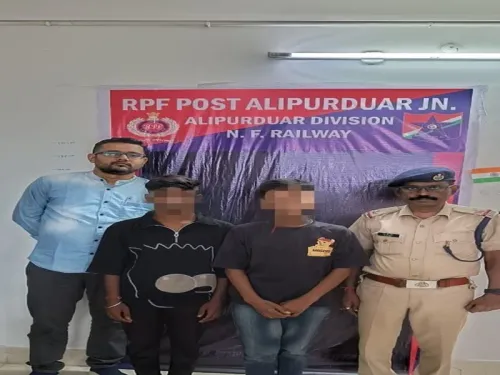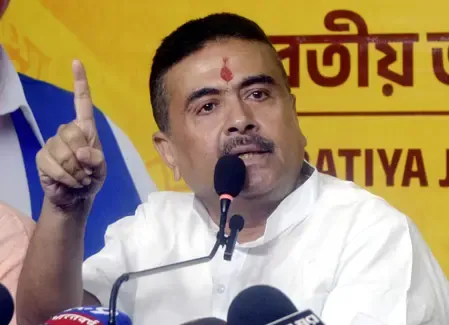Why Were Three Afghan Nationals Arrested in Kolkata with Fake Indian Identity Documents?

Synopsis
Key Takeaways
- Three Afghan nationals were arrested in Kolkata for using fake documents.
- They had entered India with valid visas but overstayed.
- The police are investigating the network behind the identity fraud.
- This case follows a pattern of similar arrests involving foreign nationals.
- Stricter enforcement of immigration laws is being called for.
Kolkata, Oct 31 (NationPress) Three Afghan nationals, who had been living in Kolkata for a considerable period using fraudulent Indian identity documents, have been apprehended, as reported by the city police on Friday.
Following a complaint filed by the Security Control Organisation, law enforcement officials detained the three individuals, identified as Jalat Khan, Abdullah Khan, and Saheb Khan, on Thursday, according to a police spokesperson.
They appeared before a lower court in Kolkata on the same day, where the court ordered their custody until November 6.
It has come to light that all three individuals entered Kolkata with legitimate Indian visas some time ago, but failed to return to Afghanistan after their visas expired. Instead, they procured counterfeit Indian identity documents such as an Aadhaar card, an EPIC card, and a PAN card. The trio arrived in Kolkata at different intervals, with Jalat Khan being the most recent, arriving in 2019.
The police are currently questioning the three men to extract details regarding their motives for overstaying their visas in Kolkata, as well as information about the individuals who facilitated the creation of their fake identity documents.
Earlier this year, officials from the Enforcement Directorate (ED) arrested a Pakistani national named Azad Mullick in a rented property on the northern outskirts of Kolkata. Mullick, originally from Pakistan, had initially obtained fake Bangladeshi identity documents to adopt a Bangladeshi identity. He later used forged Indian documents to claim Indian citizenship, after which he engaged in hawala operations and a fake passport racket from his residence in Kolkata.
In the same month, ED officials apprehended Mullick's close associate, Indu Bhusan Halder, who played a critical role in the fake passport syndicate. The ED is also investigating the whereabouts of seven other suspected Pakistani nationals who reportedly acquired counterfeit Indian passports through the same network.









